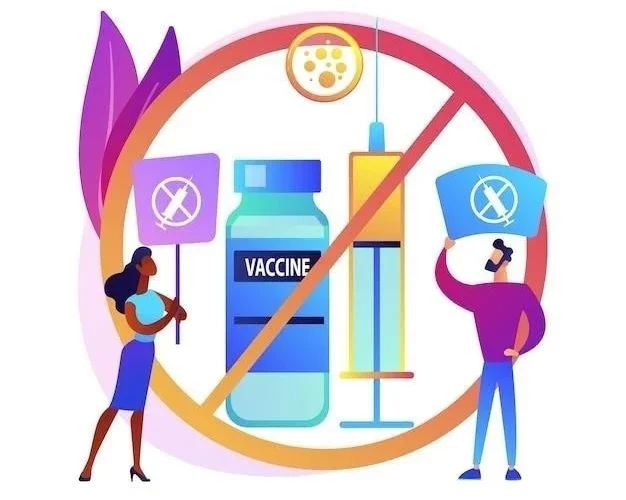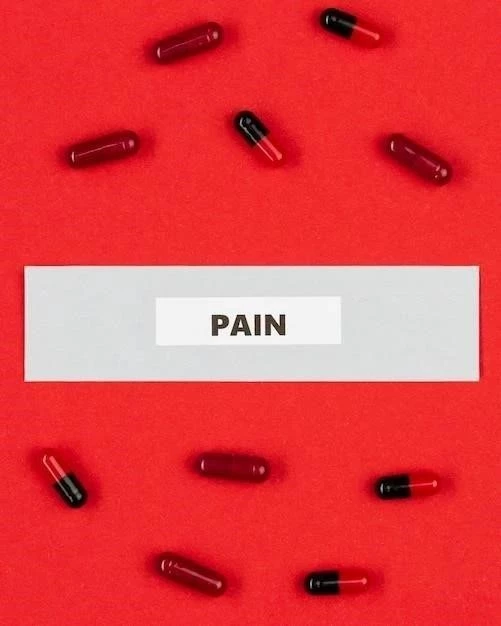Prednisone Warnings

Long-Term Use Warnings
Long-term use of prednisone can lead to a number of serious side effects, including⁚
- Cushing’s syndrome
- Osteoporosis
- Glaucoma
- Cataracts
- Diabetes
- High blood pressure
- Heart disease
- Stroke
The risk of these side effects increases with the dose of prednisone and the length of time it is taken. Therefore, it is important to use the lowest possible dose of prednisone for the shortest possible time.
Dosage Adjustment Warnings
The dosage of prednisone should be adjusted in certain situations, such as⁚
- In patients with liver disease⁚ The liver is responsible for metabolizing prednisone. In patients with liver disease, the liver may not be able to metabolize prednisone as effectively, which can lead to higher levels of prednisone in the body. Therefore, the dosage of prednisone should be reduced in patients with liver disease.
- In patients with kidney disease⁚ The kidneys are responsible for excreting prednisone from the body. In patients with kidney disease, the kidneys may not be able to excrete prednisone as effectively, which can lead to higher levels of prednisone in the body. Therefore, the dosage of prednisone should be reduced in patients with kidney disease.
- In patients with thyroid disease⁚ The thyroid gland is responsible for regulating metabolism. In patients with thyroid disease, the thyroid gland may not be able to regulate metabolism as effectively, which can affect the way the body responds to prednisone. Therefore, the dosage of prednisone may need to be adjusted in patients with thyroid disease.
- In patients taking other medications⁚ Prednisone can interact with other medications, which can affect the way the body responds to prednisone. Therefore, the dosage of prednisone may need to be adjusted in patients taking other medications.
It is important to follow the doctor’s instructions carefully when taking prednisone. The doctor will monitor the patient’s condition and adjust the dosage of prednisone as needed.
Live Vaccines Warning
Live vaccines are vaccines that contain a weakened form of the virus or bacteria that causes a particular disease. Live vaccines are used to immunize people against a variety of diseases, such as measles, mumps, rubella, and chickenpox.
Prednisone is a medication that suppresses the immune system. This means that prednisone can make it more difficult for the body to fight off infections. Therefore, people who are taking prednisone should not receive live vaccines.
If a person who is taking prednisone needs to receive a live vaccine, the doctor will usually wait until the person has finished taking prednisone or until the person’s immune system has recovered.
It is important to tell the doctor if you are taking prednisone before receiving any vaccines. The doctor will be able to advise you on whether or not it is safe for you to receive a live vaccine.
Pregnancy and Breastfeeding Warnings
Prednisone should be used during pregnancy only if the potential benefit to the mother outweighs the potential risk to the fetus. Prednisone has been shown to cause birth defects in animals, and there is some evidence that it may also cause birth defects in humans.
Prednisone passes into breast milk, and it can have harmful effects on a nursing infant. Therefore, women who are taking prednisone should not breastfeed.
If you are pregnant or planning to become pregnant, talk to your doctor about the risks and benefits of taking prednisone. Your doctor will help you decide whether or not prednisone is right for you.
Infection Warnings
Prednisone can suppress the immune system, which makes it more difficult for the body to fight off infections. Therefore, people who are taking prednisone are more likely to develop infections, including serious infections such as pneumonia and sepsis.
The risk of infection is increased with higher doses of prednisone and with longer duration of treatment. Therefore, it is important to use the lowest possible dose of prednisone for the shortest possible time.
People who are taking prednisone should be aware of the signs and symptoms of infection, and they should seek medical attention promptly if they develop any of these symptoms.
Some of the signs and symptoms of infection include⁚
- Fever
- Chills
- Cough
- Shortness of breath
- Muscle aches
- Fatigue
- Nausea
- Vomiting
- Diarrhea
- Skin rash
- Swollen lymph nodes
If you are taking prednisone and you develop any of these symptoms, it is important to see your doctor right away.
Liver Problems Warning
Prednisone can cause liver problems, including hepatitis and cirrhosis. The risk of liver problems is increased with higher doses of prednisone and with longer duration of treatment. Therefore, it is important to use the lowest possible dose of prednisone for the shortest possible time.
People who are taking prednisone should be monitored for signs and symptoms of liver problems, such as⁚
- Jaundice (yellowing of the skin or eyes)
- Dark urine
- Light-colored stools
- Nausea
- Vomiting
- Abdominal pain
- Fatigue
- Loss of appetite
If you are taking prednisone and you develop any of these symptoms, it is important to see your doctor right away.

Precautions for Specific Conditions
Prednisone should be used with caution in patients with certain medical conditions, including⁚
- Diabetes⁚ Prednisone can raise blood sugar levels, which can worsen diabetes; Therefore, people with diabetes who are taking prednisone should monitor their blood sugar levels closely and adjust their diabetes medication as needed.
- Glaucoma⁚ Prednisone can increase pressure in the eyes, which can worsen glaucoma. Therefore, people with glaucoma who are taking prednisone should have their eye pressure checked regularly.
- Heart disease⁚ Prednisone can increase blood pressure and fluid retention, which can worsen heart disease. Therefore, people with heart disease who are taking prednisone should have their blood pressure and fluid retention monitored closely.
- Kidney disease⁚ Prednisone can worsen kidney function in people with kidney disease. Therefore, people with kidney disease who are taking prednisone should have their kidney function monitored closely.
- Thyroid disease⁚ Prednisone can interfere with the thyroid gland, which can worsen thyroid disease. Therefore, people with thyroid disease who are taking prednisone should have their thyroid function monitored closely.
It is important to tell your doctor about all of your medical conditions before taking prednisone. Your doctor will be able to tell you whether or not prednisone is right for you and will monitor you closely for any side effects.
Hyperglycemia Warning
Prednisone can cause hyperglycemia (high blood sugar) in both people with and without diabetes. Hyperglycemia can lead to a number of serious complications, including⁚
- Increased thirst
- Frequent urination
- Blurred vision
- Fatigue
- Weight loss
- Nausea and vomiting
- Abdominal pain
- Confusion
- Loss of consciousness
If you are taking prednisone and you experience any of these symptoms, it is important to check your blood sugar levels and contact your doctor right away.
Insomnia Warning
Prednisone can cause insomnia (difficulty falling or staying asleep). Insomnia can be a frustrating and debilitating side effect, and it can interfere with your daily life.
There are a number of things you can do to help manage insomnia caused by prednisone, including⁚
- Establish a regular sleep schedule⁚ Go to bed and wake up at the same time each day, even on weekends.
- Create a relaxing bedtime routine⁚ Wind down before bed by doing relaxing activities, such as reading, taking a warm bath, or listening to calming music.
- Make sure your bedroom is dark, quiet, and cool⁚ These conditions are ideal for sleep.
- Avoid caffeine and alcohol before bed⁚ These substances can interfere with sleep.
- Get regular exercise⁚ Exercise can help you fall asleep more easily, but avoid exercising too close to bedtime.
- Talk to your doctor⁚ If you are having trouble managing insomnia caused by prednisone, talk to your doctor. There are a number of medications that can help improve sleep.
If you are taking prednisone and you are experiencing insomnia, it is important to talk to your doctor. Insomnia can be a serious side effect, and it is important to get treatment if you are struggling with it.
Increased Appetite Warning
Prednisone can cause increased appetite, which can lead to weight gain. Weight gain can be a serious problem, as it can increase your risk of developing a number of health conditions, including⁚
- Heart disease
- Stroke
- Type 2 diabetes
- Cancer
- Osteoporosis
- Sleep apnea
If you are taking prednisone and you are experiencing increased appetite, there are a number of things you can do to help manage your weight, including⁚
- Eat a healthy diet⁚ Focus on eating fruits, vegetables, and whole grains. Limit your intake of processed foods, sugary drinks, and unhealthy fats.
- Get regular exercise⁚ Exercise can help you burn calories and lose weight.
- Make small changes to your lifestyle⁚ Small changes, such as taking the stairs instead of the elevator or parking further away from the store, can add up and help you lose weight.
- Talk to your doctor⁚ If you are having trouble managing your weight while taking prednisone, talk to your doctor. There are a number of medications that can help suppress appetite and promote weight loss.
It is important to remember that weight gain is a common side effect of prednisone. However, there are a number of things you can do to help manage your weight and reduce your risk of developing serious health problems.
Hypertension Warning
Prednisone can cause hypertension (high blood pressure). Hypertension is a serious condition that can increase your risk of developing a number of health problems, including⁚
- Heart disease
- Stroke
- Kidney disease
- Eye problems
- Erectile dysfunction
If you are taking prednisone and you are experiencing high blood pressure, there are a number of things you can do to help manage your blood pressure, including⁚
- Eat a healthy diet⁚ Focus on eating fruits, vegetables, and whole grains. Limit your intake of processed foods, sugary drinks, and unhealthy fats.
- Get regular exercise⁚ Exercise can help lower blood pressure.
- Reduce your sodium intake⁚ Sodium can raise blood pressure. Aim to consume less than 2,300 milligrams of sodium per day.
- Limit your alcohol intake⁚ Alcohol can raise blood pressure.
- Quit smoking⁚ Smoking can raise blood pressure.
- Talk to your doctor⁚ If you are having trouble managing your blood pressure while taking prednisone, talk to your doctor. There are a number of medications that can help lower blood pressure.
It is important to remember that hypertension is a common side effect of prednisone. However, there are a number of things you can do to help manage your blood pressure and reduce your risk of developing serious health problems.

Osteoporosis Warning
Prednisone can cause osteoporosis (weakening of the bones). Osteoporosis is a serious condition that can increase your risk of fractures.
There are a number of things you can do to help prevent osteoporosis while taking prednisone, including⁚
- Get enough calcium⁚ Calcium is essential for bone health. Aim to consume at least 1,000 milligrams of calcium per day.
- Get enough vitamin D⁚ Vitamin D helps your body absorb calcium. Aim to get at least 600 IU of vitamin D per day.
- Get regular exercise⁚ Exercise can help strengthen your bones.
- Avoid smoking⁚ Smoking can damage your bones.
- Limit your alcohol intake⁚ Alcohol can damage your bones.
- Talk to your doctor⁚ If you are at high risk for osteoporosis, your doctor may recommend taking medication to prevent bone loss.
It is important to remember that osteoporosis is a common side effect of prednisone. However, there are a number of things you can do to help prevent osteoporosis and reduce your risk of fractures.
Edema Warning
Prednisone can cause edema (fluid retention). Edema can be a serious problem, as it can lead to a number of health problems, including⁚
- Swelling in the hands, feet, ankles, and legs
- Shortness of breath
- Weight gain
- High blood pressure
- Heart failure
If you are taking prednisone and you are experiencing edema, there are a number of things you can do to help manage it, including⁚
- Reduce your sodium intake⁚ Sodium can cause fluid retention. Aim to consume less than 2,300 milligrams of sodium per day.
- Elevate your feet⁚ Elevating your feet can help reduce swelling in your legs and ankles.
- Wear compression stockings⁚ Compression stockings can help reduce swelling in your legs and ankles.
- Talk to your doctor⁚ If you are having trouble managing edema while taking prednisone, talk to your doctor. There are a number of medications that can help reduce fluid retention.
It is important to remember that edema is a common side effect of prednisone. However, there are a number of things you can do to help manage edema and reduce your risk of developing serious health problems.
Adrenal Suppression Warning
Prednisone can cause adrenal suppression, which is a condition in which the adrenal glands do not produce enough of the hormone cortisol. Cortisol is a hormone that is essential for a number of bodily functions, including⁚
- Regulating blood sugar levels
- Responding to stress
- Maintaining blood pressure
- Regulating the immune system
Adrenal suppression can be a serious condition, as it can lead to a number of health problems, including⁚
- Fatigue
- Weight loss
- Nausea and vomiting
- Low blood pressure
- Impaired immune function
If you are taking prednisone and you are experiencing any of these symptoms, it is important to talk to your doctor right away. Adrenal suppression is a serious condition, but it can be managed with medication.
Cataracts Warning
Prednisone can cause cataracts, which are a clouding of the lens of the eye; Cataracts can lead to blurred vision, double vision, and glare. In severe cases, cataracts can lead to blindness.
The risk of developing cataracts is increased with higher doses of prednisone and with longer duration of treatment. Therefore, it is important to use the lowest possible dose of prednisone for the shortest possible time.
If you are taking prednisone and you are experiencing any changes in your vision, it is important to see your doctor right away. Cataracts can be treated with surgery, but early diagnosis and treatment are important to prevent vision loss.
Delayed Wound Healing Warning
Prednisone can delay wound healing. This is because prednisone suppresses the immune system, which can slow down the body’s ability to repair itself.
The risk of delayed wound healing is increased with higher doses of prednisone and with longer duration of treatment. Therefore, it is important to use the lowest possible dose of prednisone for the shortest possible time.
If you are taking prednisone and you have any wounds, it is important to keep them clean and dry. You should also avoid putting pressure on the wounds and avoid activities that could cause further injury.
If you are concerned about delayed wound healing, talk to your doctor. There are a number of things that your doctor can do to help speed up the healing process.